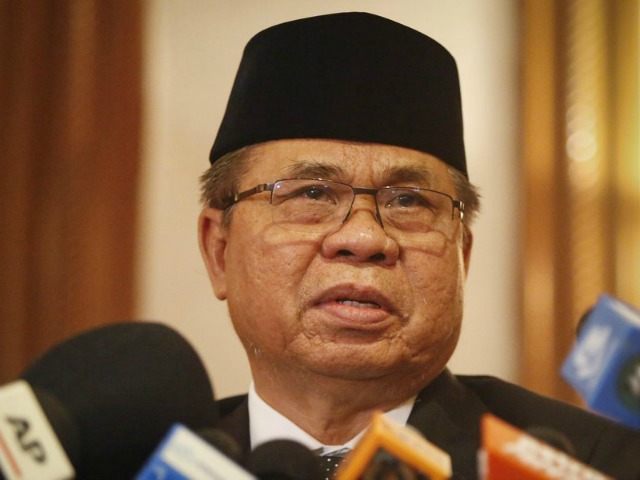The chairman of Philippine Islamist separatist group the Moro Islamic Liberation Front (MILF) is warning that disenchantment over the success of peace talks between MILF and the Philippine government is aiding Islamic State recruitment in southern Mindanao.
“There have been some efforts of penetration [by ISIS] but they have not succeeded in establishing a stronghold in Mindanao,” Murad Ebrahim, who runs the MILF separatist group, said this week. He noted that this may change if the Philippine Congress does not pass a proposed bill that would give Bangsamoro, a region within Mindanao, political autonomy. “Now after the non-passage of the [Bangsamoro Basic Law], we are quite concerned that they can capitalise on this because the [frustration] of the people in the area is now very strong,” Murad said.
The bill is part of peace talks between MILF and the Philippine government, as the former seeks to establish an Islamist mini-state within the majority Catholic Philippines. As MILF has, for the most part, given up violence as a mode of political persuasion during these peace talks, those disappointed in MILF’s moderation may be enticed to join the Islamic State, Murad argued. He noted that his group is attempting to contact Islamic State leaders in the Philippines “to dissuade them from attacks.”
To those disappointed by MILF’s turn towards a peaceful political process, Murad added assurances that his group, believed to be comprised of upwards of 11,000 people, will never be fully peaceful. “We cannot completely abandon armed struggle, but we always believe we have to give supremacy, primacy to the peace process because we believe the solution to the problem is still political,” he said.
MILF leadership issued a similar warning in January, following the appearance of a video in which several smaller Islamist terror groups pledged allegiance to the Islamic State, including the leadership of Abu Sayyaf, an extremely violent jihadist group operating in the southern Asian nation. The leader of Abu Sayyaf had personally pledged allegiance to the Islamic State in July 2014, The Sydney Morning Herald notes, but it was not until the release of the December video that his pledge extended to include all members of the terrorist group.
A month before the release of the video, Abu Sayyaf jihadists abducted two Canadian and one Norwegian citizen in the Philippines, demanding a $60 million ransom for their safety. As of late February, the hostages remain under control of Abu Sayyaf and law enforcement officials confirmed that they have no information regarding whether the hostages remain alive and in good condition.
“The recruitment as well [as] the video of their training that came out are authentic,” MILF chief peace negotiator Mohagher Iqbal said upon the release of that video. Iqbal clarified that MILF had information confirming that ISIS had begun recruiting in Mindanao among populations that disagreed with MILF’s peace talks with the government. “They are frustrated. They think their Muslim leaders in the MILF and Moro National Liberation Front have abandoned their struggle,” he explained. “The failure passage of Bangsamoro Basic Law (BBL) is also a source of frustration.”
In December, MILF issued a statement arguing that, should they not get the autonomy they have sought through violence for decades, the Islamic State would benefit. “We do not see any wisdom of delaying the passage of the Bangsamoro Basic Law in Congress. Any delay is counter-productive – it only feeds on the appetite of so-called radicals and terrorists,” the statement read. The group, nonetheless, announced it would extend its ceasefire promise with Manila through 2016.
Some variation of the MILF has existed since 1977, using violence to force the Philippine government to allow them to establish a Sharia-based government system within the Philippines. The group has received funding from al-Qaeda and sent representatives to travel the world and collect funds from prominent Middle Eastern Islamists; it has also funded itself by forcing Muslim Filipinos living in their territory to pay “alms” to the group. It is not, however, designated a terrorist organization by either the United States or the European Union.

COMMENTS
Please let us know if you're having issues with commenting.